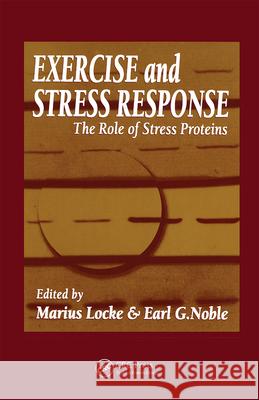Exercise and Stress Response: The Role of Stress Proteins » książka
topmenu
Exercise and Stress Response: The Role of Stress Proteins
ISBN-13: 9780849304583 / Angielski / Twarda / 2002 / 236 str.
Over the past 10 years, researchers have been investigating the expression, regulation, and protective nature of stress proteins (SPs) during and following exercise. Since the expression of SPs have been shown to provide protection to cells and tissues, the importance of understanding their role during exercise cannot be understated. However the terminology, the myriad of stress proteins, and their complex regulation creates a confusing arena in which to enter. Exercise and Stress Response: The Role of Stress Proteins provides an up-to-date review on topics related to exercise and health, giving investigators the necessary background to pursue stress proteins.
ABOUT THE EDITORS: Marius Locke, Ph.D. is an Assistant Professor in the Faculty of Physical Education and Health at the University of Toronto in Ontario, Canada. Dr. Locke received a B.A. with honors in Physical Education (1984), a B.Sc. in Biology (1987), and a Ph.D. in Kinesiology from the University of Western Ontario (1992), where he also played varsity football. Dr. Locke was awarded a Natural Science and Engineering Research Council of Canada Post Doctoral Fellowship and studied at the Deborah Research Institute in Browns Mills, New Jersey from 1993-1996. In 1999, Dr. Locke received the American College of Sports Medicine's new investigator award. Dr. Locke is a member of American College of Sports Medicine, the Canadian Society for Exercise Physiology and the Cell Stress Society International. Earl G. Noble, Ph.D. is an Associate Professor in the School of Kinesiology at the University of Western Ontario in London, Ontario, Canada. He received his B.Sc. (1973) and M.Sc. (1975) in Kinesiology from the University of Waterloo and his Ph.D. from Washington State University (1980). Dr. Noble is a member of the Canadian Society for Exercise Physiology, the American College of Sports Medicine and the Cell Stress Society International and the Research Group on Biochemistry of Exercise of the International Council of Sport Science and Physical Education (UNESCO). The overriding theme of his research is to examine muscle plasticity and the manner in which muscle adapts to novel or stressful conditions, especially exercise.










